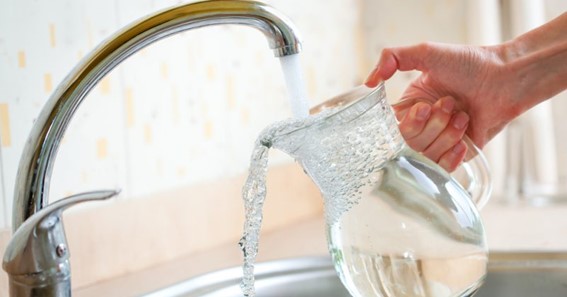There is widespread worry about the presence of chlorine in drinking water, leading many to seek for methods to filter it out. Municipal water systems often employ chlorine as a disinfectant to rid the water of disease-causing microorganisms such bacteria, viruses, and protozoa but distilled water doesn’t have it.. A lot of folks can’t stand the way it tastes or smells in their beverages.
More importantly, chlorine’s metabolites are poisonous and can be absorbed through the skin, lungs, and eyes. Trihalomethanes (THMs) are the name for these by-products. Several human studies have looked into whether or not drinking chlorinated water increases the risk of cancer.
These investigations weren’t set out to determine if chlorine itself is carcinogenic, but rather if the Trihalomethanes and other organic chemicals produced during the chlorination process are linked to an elevated risk of cancer in humans. Chlorination by-products in drinking water have been linked in these studies to an increased risk of bladder and rectal cancer.
Overview:
Water is preferable to sugary drinks like soda and fruit juices for hydration because it has no calories and no sugar. Most sugary beverages, such as sodas and fruit juices, dehydrate the body. While it may seem simple to just grab a glass of water, there are actually quite a few variations to choose from.
- Standard drinking water
- Spring water
- Pure, distilled water
- Well water
There are benefits to every type of water, but there are also problems associated with some of them. Steam collected during the boiling of water is condensed into pure, drinkable distilled water. Distilled water is considered to be “purer” than tap water since the boiling process removes minerals and other contaminants.
This has led some to conclude that consuming distilled water can assist flush the body of toxins. Some people argue that the minerals in water are essential to human health, while others disagree.
Click Here – Embracing Macrame: Innovative Home Decor Ideas
Chlorine’s Dangerous Effects on Human Health:
Chlorine gas can irritate the nasal and optical membranes. Chlorine can be irritating to the stomach since it kills all germs, good and bad. Many organic compounds react with chlorine to produce cancer-causing compounds.
Chlorinated water has an unpleasant flavour that turns off most consumers. That’s why you might see a slice of lemon in your restaurant’s water. (Vitamin C from lemon juice and chlorine react negatively with one another.)
-
Chlorine Removal and Distillation:
Distillation involves bringing water to a boil, then cooling it such that the vapour condenses back into liquid form. Chlorine is added to water to kill bacteria, and its boiling point is lower than that of water. This makes it convenient to get rid of because it “off-gases” into the air within 24 hours or evaporates when the water is boiled for 15 minutes.
In order to vent the chlorine gas produced by water distillers, a tiny hole is drilled into the top of the condenser tube. Water Distillers offers water that hasn’t been treated with chlorine, making it ideal for people with weak immune systems.
-
Using Distillation To Remove VOCs:
Pesticides, flame retardants, and solvents all contain volatile organic compounds. Their boiling points could be anything from 30 to 290 degrees Celsius. VOCs with a boiling point below 100 degrees Celsius can be removed using distillation. The final step in the purification process involves passing everything that has a boiling point below 100 degrees Celsius through a distiller and then filtering it via activated charcoal.
Most water distillers have a built-in activated charcoal filter that eliminates VOCs by absorbing them. However, after 28 distillations, you need change the activated charcoal filter sachet to keep it functioning properly.






